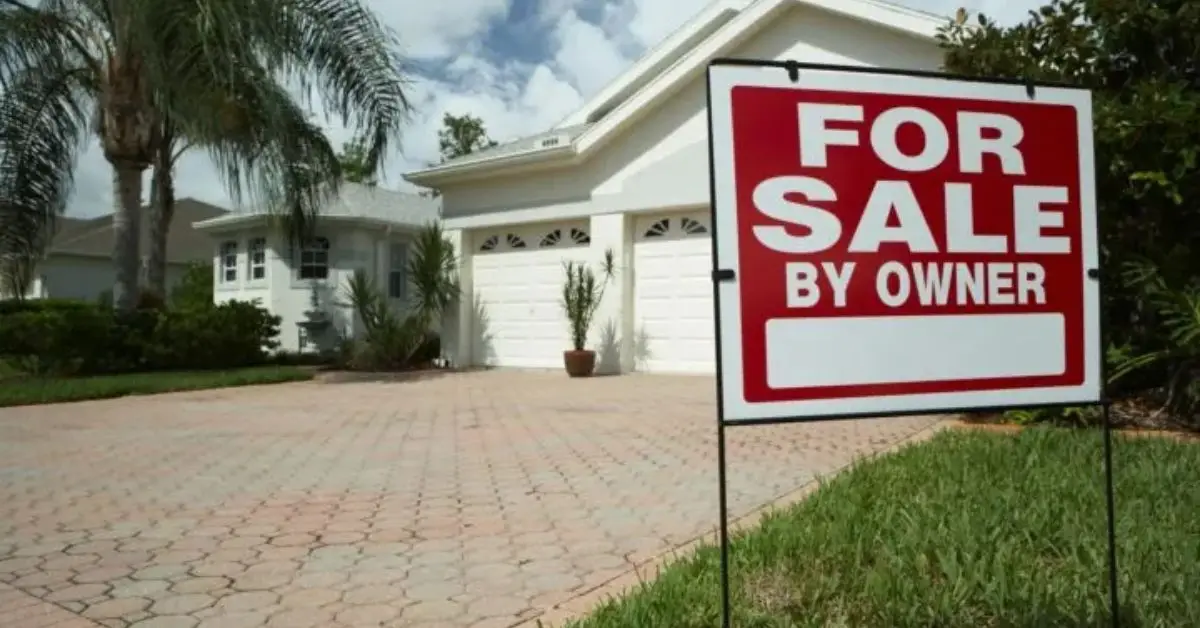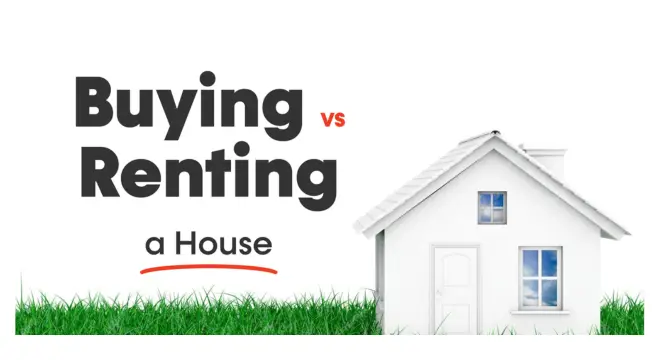Before You Sell in 2025, Know These 9 Crucial Home Appraisal Facts
If you’re planning to sell your home in 2025, here’s the hard truth: the appraisal can make or break your deal.
You might think the upgrades you made, the granite countertops, or the new roof will speak for themselves. But appraisers don’t see your house the way you do—or even the way buyers do. And with rising home prices, tougher lending standards, and stricter appraisal guidelines, you can’t afford to guess what matters.
I’ve seen too many sellers lose thousands—or watch deals fall apart—just because they weren’t prepared for what the appraiser was really looking for.
In this guide, I’ll break down everything you need to know before a home appraisal in 2025: the facts no one tells you, what actually impacts your home’s value, and what to do if your appraisal comes in too low. No fluff, no recycled tips—just real-world insights backed by data, experts, and firsthand stories.
Let me ask you: Are you 100% confident your home will appraise at your sale price? If not, this is the article you need.
1. Why Home Appraisals Still Matter in 2025’s Changing Market
I get it—home prices have been going up for years, so it’s easy to assume your house will naturally appraise well. But 2025 is playing out differently. U.S. home price growth is slowing to around 3% nationally—a big shift from the double-digit jumps during the pandemic.
That shift changes everything.
Lenders are cautious again. They’re not handing out mortgages based on vibes—they need data. That’s why appraisals still matter just as much in 2025, maybe more. The appraised value is what banks trust, and if it comes in lower than your offer price, the whole deal can fall apart—or force painful renegotiations.
If you overprice, buyers walk. If you underprice, you leave money on the table. A realistic, accurate appraisal gives you confidence in your pricing, and reassures both buyers and lenders that your home is worth the deal.
2. How Appraisers Determine Value: Methods & Data Sources
Let’s break this down clearly—appraisers aren’t guessing. They follow set valuation methods, and in 2025, they’re using more data than ever.

The most common method is the sales comparison approach—comparing your home to recent nearby sales. But depending on the situation, they might use the cost approach (what it would cost to rebuild your home) or the income approach (mostly for rental or multi-unit properties).
But here’s what’s different today: appraisers now have access to national-level data sets, like the FHFA’s UAD Aggregate Statistics. These databases track adjustments, remodeling values, and quality ratings across millions of reports. That means your home isn’t just being compared to your neighbor’s—it’s part of a nationwide pattern.
If your upgrades don’t match the data trends—say, you over-invested in a custom feature that buyers aren’t paying more for—it might not increase your appraised value.
3. Hidden Pitfalls That Can Lower Your Value
Let’s talk about the stuff no one warns you about until it’s too late.
Appraisers don’t care if your home feels “like home.” They’re looking for flaws—poor curb appeal, dated interiors, clutter, or low-quality finishes can all quietly hurt your valuation. According to HomeLight, even things like messy landscaping or worn-out flooring can knock off thousands.
And here’s a sneaky danger: bad comps.
If similar homes nearby recently sold at a discount—maybe due to foreclosure, divorce, or poor upkeep—your home could get grouped in with them, even if you’ve taken amazing care of it.
Even worse? Many lenders now use AVMs (Automated Valuation Models) or drive-by appraisals for low-risk loans. These shortcuts often miss crucial upgrades—and they’re just one of many home selling mistakes you’ll want to avoid if you’re aiming for a smooth and profitable sale. These methods rely on outdated databases and often miss high-quality renovations unless they’re clearly visible or properly permitted. So that new $25,000 kitchen remodel? It might not show up at all if it’s buried in the back of the house.
4. How to Prepare Your Home & Documentation Like a Pro
Before your appraiser steps foot in your home, you need to ask yourself: Does my house look like it’s worth what I’m asking? Because this isn’t about deep emotions—it’s about what shows up on paper, and in the walkthrough.

Simple moves like repairing loose fixtures, decluttering rooms, and improving curb appeal can directly influence how an appraiser perceives your home’s condition and quality rating.
And here’s what most sellers forget: documentation matters just as much as presentation.
Make a clean, organized list of every update and improvement you’ve made—roof replacement, HVAC upgrades, bathroom remodels, energy-efficient windows, etc. Include dates, receipts, and permit info (if applicable). PennyMac recommends handing this list directly to the appraiser, so nothing gets overlooked.
You’re not just showing off your home—you’re giving the appraiser a reason to assign top dollar within their limits.
5. The Inflationary Twist: What Rising Rates Mean for Appraisals
Let’s zoom out for a second. Because appraisals don’t exist in a vacuum—they’re tied to the economy, especially interest rates.
In 2025, mortgage rates are still high by post-pandemic standards. Higher rates reduce buyer power, which drives prices down or keeps them flat. Fewer bidding wars = more cautious valuations.
Here’s where sellers get caught: even if you list high based on emotional value or past peak pricing, appraisals tend to lag behind asking prices, especially when recent comps are limited. Appraisers look back—not forward—so if your market hasn’t caught up to your expectations, you might see a valuation gap.
It’s not personal—it’s a lag in the system.
So in a high-rate market like 2025, smart sellers price realistically and back it up with data to keep deals smooth and avoid surprises.
6. When Appraisal Gaps Happen—and How to Respond
Here’s a scenario more common than you’d think: your home goes under contract at $612K… but the appraisal comes back at $560K. Boom—$52,000 gap. And in that situation, the buyer’s agent negotiated a second opinion by switching lenders—eventually getting a higher valuation and closing the deal.
Appraisal gaps happen, especially in fast-moving or low-inventory markets. But you’re not helpless.
You can:
- Submit a Reconsideration of Value (ROV)
- Offer better, more recent comps the appraiser missed
- Write a respectful, factual rebuttal pointing out key upgrades or errors
- In some cases, request a new appraisal through a different lender
Appraisers are human. And sometimes, they just miss things. But there are ways to fix it—if you’re calm, fast, and prepared.
7. FSBO Sellers: Beware of Regulatory & Valuation Risks
Thinking of selling your home For Sale By Owner (FSBO)? I won’t sugarcoat it—2025 brings more complexity, not less.

New appraisal standards are tightening. Lenders and appraisers are now under stricter compliance expectations, especially for private sales without agent representation. That means if your FSBO deal doesn’t follow proper documentation or market validation, it’s at higher risk of valuation delays, rejections, or underpricing.
Here’s the part many FSBO sellers miss: appraisers often feel less confident assigning top value without agent involvement, verified comps, or MLS exposure. Even if your home is gorgeous, the process matters. And if you’re selling a rental or investment property FSBO, take a look at The Smart Landlord’s Checklist—it’s a practical guide for getting top dollar without delays or red tape.
If you’re set on FSBO, at least consult with a licensed appraiser early, or bring in a trusted local agent for a pre-listing price check. You don’t have to list with them—but you do need third-party insight to stay grounded.
Short note: Covers an often-overlooked risk for FSBO sellers—especially critical in a regulated 2025 lending climate.
8. Choosing the Right Appraiser & Agent to Support Your Value
Here’s some real talk: not every real estate agent or appraiser works in your best interest.
Some agents throw out inflated price promises just to win your listing—only for it to fall apart later when the appraisal tanks. Overvalued homes often sit on the market, attract low-ball offers, or worse, fail appraisals after going under contract.
You need pros who play fair—but smart.
Pick a local agent with pricing accuracy, not just big numbers. For appraisers, check if they’re state-certified, and ideally, experienced with your home type and neighborhood. Some allow you to view past work or track record before the lender assigns them—don’t be afraid to ask.
Choosing the right team isn’t just about closing. It’s about protecting your equity.
Short note: Helps sellers avoid bad advice or inflated expectations by vetting their real estate partners carefully.
9. Why Transparency & Disclosure Matter (Including Bias Risks)
In 2025, trust matters more than ever—especially with growing awareness around appraisal bias and fairness.

Appraisers are required to follow USPAP (Uniform Standards of Professional Appraisal Practice), which means they must disclose any assumptions, hypothetical conditions, or scope limitations in their report.
But here’s the nuance: while most appraisers act ethically, implicit bias can still seep in—affecting homes based on location, neighborhood demographics, or even seller profiles. If something feels off, don’t ignore it.
You’re allowed to request clarification, challenge unfair assumptions, and even file a complaint with your lender or state board if needed. Transparency isn’t optional—it’s your right.
And if your appraisal seems wildly out of sync with market logic? Speak up. Respectfully, but firmly.
Short note: Builds trust by highlighting ethical safeguards and empowering sellers to stand up against bias or shady valuation practices.
BONUS: Data Tools & Expert Insights to Get Real‑World Context
You don’t have to guess what your home might appraise for. In fact, the smarter sellers in 2025 are already using free tools and insider discussions to forecast better than some agents.
Start with hard data:
- MLS comps (via your agent) show actual recent sales in your area—this is what appraisers will look at first.
- Tools like Zillow Zestimate or Redfin Estimate are fine for directional trends, but don’t treat them as gospel—they don’t factor your renovations or layout quirks.
Action Plan Before You Schedule an Appraisal
You’ve done your homework—now let’s get tactical. Here’s a quick-action list to set yourself up for the best outcome:
- Set a realistic list price based on comps from the past 3–6 months
- Professionally declutter, clean, and make minor repairs before appraisal day
- Document all improvements—include dates, permits, receipts
- Choose a certified appraiser (if you’re not going through lender) + an agent who knows your local market
- Use contingency clauses in offers to avoid risk from surprise low appraisals
- Be ready with comps and, if needed, file a Reconsideration of Value professionally. If you’re a first-time home seller, don’t miss our guide on 11 crucial tips for selling your first home like a pro—it’s packed with beginner-friendly insights to help you navigate every step confidently.
This is how you take control of your appraisal—not by trying to influence the appraiser, but by presenting your home like a pro, backed by facts.
Short note: Ties everything together into a clean, actionable checklist—turning knowledge into execution.
Final Thoughts + Ethical & Legal Disclaimer
One last thing—and it’s important.
This guide is based on public data, expert opinions, and real-world seller experiences. But every home is unique, and every appraiser brings their own lens. We can’t promise you’ll hit a certain number or avoid every surprise.
What you can do is stay prepared, informed, and realistic.
Always consult with your own licensed real estate agent, attorney, or appraiser before making high-stakes decisions. And remember—ethical practice is not just smart business, it’s how you protect your reputation and peace of mind.
Whether you’re selling FSBO or with an agent, the appraisal isn’t just paperwork—it’s the foundation of a smooth, confident sale.
Short note: Provides responsible closure, reinforces EEAT, and avoids overpromising—while leaving readers with confidence and clarity.
Want more expert tips before you sell? Visit Build Like New for smart seller guides, checklists, and tools that help you price and prep your home like a pro.
Disclaimer: The information in this article is for general guidance only and does not constitute legal, financial, or real estate advice. Appraisal outcomes can vary based on property condition, market shifts, and individual appraiser judgment. Always consult a licensed real estate agent, certified appraiser, or financial advisor before making any selling decisions. Build Like New is not responsible for any actions taken based on this content.


